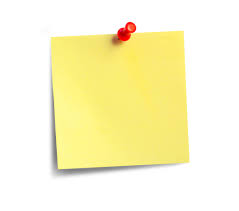note
英 [nəʊt]
美 [noʊt]
- n. 笔记;音符;票据;注解;纸币;便笺;照会;调子
- vt. 注意;记录;注解
- n. (Note)人名;(英)诺特
使用频率:

记忆方法
将“note”与“notebook”(笔记本)联系起来记忆。想象每次翻开笔记本时,你都会看到一个提醒或笔记(note),这样就能自然地记住“note”这个词的含义。
以上内容由AI生成, 仅供参考和借鉴
中文词源
note 注意,留意,笔记,记录
来自拉丁语nota,记号,标记,记录,可能来自PIE*gno,去知道,了解,词源同notice,know.
英语词源
- note
-
note: [13] Latin nota had a remarkably wide range of meanings. Its original sense was ‘sign, mark’, but already in classical times it had broadened out semantically to include ‘alphabetical character’, ‘shorthand sign’, ‘brief letter’, ‘musical note’, and ‘characteristic quality’. Many of these followed it via Old French note into English, where they were supplemented by ‘distinction, reputation’, perhaps inspired by the derived adjective notable [14]. From the same source came notary [14], etymologically a ‘shorthand-writer’.
- note (v.)
- c. 1200, "observe, take mental note of, mark carefully," from Old French noter "indicate, designate; take note of, write down," from Latin notare "to mark, to note, to make a note," from nota "mark, sign, note, character, letter" (see note (n.)). Meaning "to set in writing" is from early 14c. Related: Noted; noting.
- note (n.)
- c. 1300, "a song, music, instrumental music; a musical note," from Latin nota "letter, character, note," originally "a mark, sign, means of recognition," which is perhaps related to notus, past participle of noscere (Old Latin *gnoscere) "to know" (see know). Meaning "notice, attention, reputation" is early 14c. Meaning "brief writing" is from 1540s.
权威例句
- 1. Somehow he tells these stories without a note of horror.
- 不知为什么他讲这些故事时一点都不害怕。
- 2. She scribbled a note to tell Mum she'dgone out.
- 她匆匆写了个便条告诉妈妈她已外出。
- 3. She had written him a note a couple of weeks earlier.
- 她几周前给他写过一个便条。
- 4. Another interesting note was the predominance of London club players.
- 另一个有趣的现象是,伦敦俱乐部的球员在数量上占优势。
- 5. Stevens wrote him a note asking him to come to his apartment.
- 史蒂文斯给他写了张便条,请他去自己的公寓。